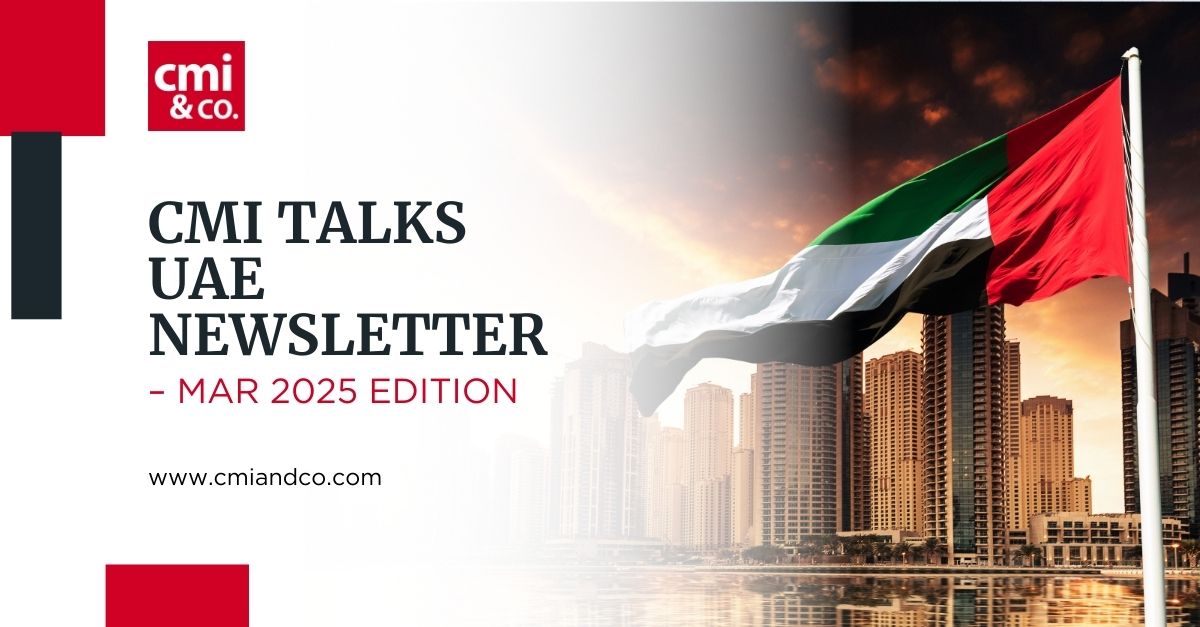Dubai Issues New Regulations For Freezone Companies
The Crown Prince of Dubai issued Executive Council Resolution No. (11) of 2025, to regulate the operations of free zone companies aimed to expand their operations onto mainland Dubai.
Key Takeaways:
- The resolution applies to all freezone establishments in Dubai, excluding financial institutions licensed in the Dubai International Financial Centre (DIFC) as per Article 2.
- The Resolution introduces under Article 4, three types of licenses and permits for free zone entities:
- License to establish a branch within the Dubai mainland
- License for a branch with headquarters in the free zone
- Temporary permit for specific activities (for up to 6 months)
- The DET is authorized to issue a one-year renewable license to a company to establish a branch within the Emirates or a license for a branch with its headquarters in the freezone.
- This resolution supports Dubai ambitious D33 agenda, which aims to double the Emirates’ economy to Dh32 trillion by 2033 and establish Dubai among the top three global cities.
New DIFC Courts Law Enhances Dubai’s Legal Framework
The Prime Minister of the UAE, His Highness Sheikh Mohammed bin Rashid Al Maktoum issued Law No. (2) of 2025 replacing the DIFC Laws No. (10) and No. (12) of 2004 concerning the Dubai International Financial Centre Courts (DIFC Courts). Regulations and decisions issued under Law No. (10) and (12) of 2004 will remain in effect, provided they do not contradict with the provisions of new law until new regulations and decisions are introduced to replace them.
Key Takeaways
- The Law No. (2) of 2025 establishes the DIFC Courts (Court of Appeal, Courts of First Instance, and Small Claims Court) as independent judicial bodies with clearly defined jurisdictions.
- The law introduces a dedicated mediation centre allowing parties to amicably resolve their disputes with the help of mediators registered with the DIFC Courts.
- The DIFC Courts shall have exclusive jurisdiction over civil, commercial, and labour claims filed by or against the Centre’s bodies or institutions, or to which the Centre’s bodies or institutions are parties.
- The law also grants the DIFC Courts jurisdiction to hear requests for provisional and protective measures related to cases under their jurisdiction, including identity and asset inquiries.
UAE Passes New Zakat Law with Strict Regulations and Heavy Penalties
The Federal National Council (FNC) passed a new draft federal law regulating the collection, distribution, and management of Zakat in the UAE.
Key Takeaways
- The law introduces strict enforcement measures with penalties including imprisonment and fines up to Dh1 million or both for unauthorised collection or misuse of zakat funds, treating such violations as crimes against public funds.
- A unified digital platform ‘National Zakat Platform’, will be created to record all authorised entities, eligible beneficiaries, fund allocations, and collected and distributed Zakat to ensure transparency and efficient management.
- Distribution of Zakat outside UAE is prohibited except in exceptional cases such as natural disasters or major humanitarian crisis.
- The law says authorised entities may invest surplus zakat funds only with the approval of the competent authority and under strict conditions.
UAE Implements New Traffic Laws
The UAE’s new traffic law – Federal Decree Law No. (14) of 2024 on Traffic Regulation comes into effect from March 29, 2025, bringing major changes including stricter penalties for serious offences.
Key Takeaways
- The minimum age to apply for a UAE driving license has been reduced to 17 years old.
- The new law outlines penalties for driving under the influence of alcohol and narcotic or psychotropic substances:
- Imprisonment and/or fine between Dh20,000 and Dh100,000 for alcohol and Dh30,000 and Dh200,000 for narcotics
- License suspension for three months for first offence, six months for second offence and cancellation of license in the third time for both the cases.
- The new law imposes a fine of Dh10,000 and/or imprisonment for up to three months in case a driver is caught with a suspended license.
Jaywalking now faces significant penalties for improper road crossing, with fines of Dh5,000-10,000 and minimum three-month jail term on high-speed roads.




